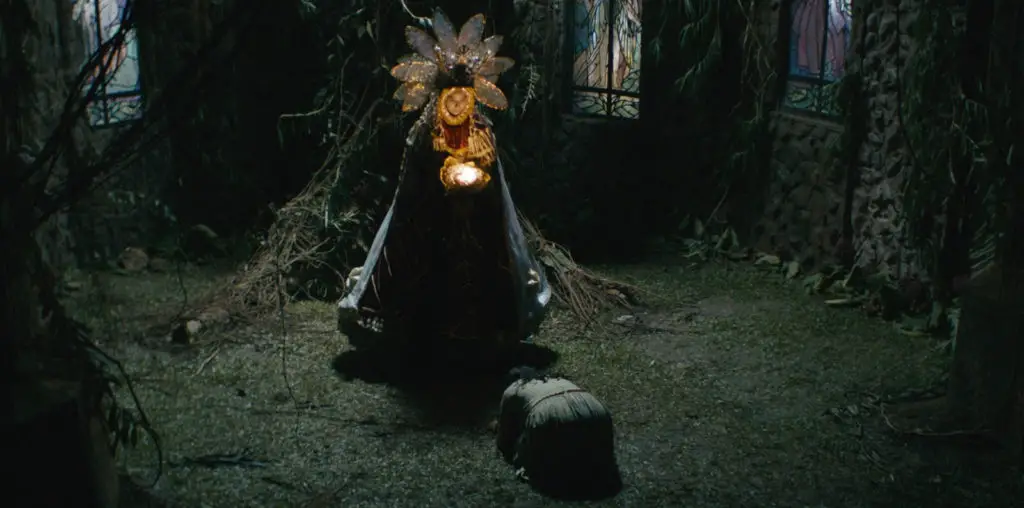
Just so you know, “Decasia” is an experimental film. With moody, hypnotic music (and when I say “hypnotic,” that’s a polite word for sleep-inducing) we’re treated to random images in black and white. We see foreigners dancing, reels of film going through development fluid in a plant, the ocean, a woman’s face all enhanced by overexposed film that includes what look like blobs from a lava lamp. No story, just randomness. I’m sure the filmmaker would disagree, but, honestly, I don’t see the point. It’s a visual Rorschach test and I must have failed.
Personally, I’ve never understood “experimental film.” Never cared for it. I see them mostly as exercises in getting to know the camera or film stock made by first year film students. And the word “experimental film” is misleading as well. The word “experiment” implies that there should be a goal or a test or a theory that must be proven via this experiment. When a scientist puts on a white lab coat and conducts an experiment, he or she is trying to prove something – the speed of light, that water can conduct electricity, the chemical make-up of Captain Crunch, something concrete. Just once, I’d like to see an experimental film in which an actual experiment took place.
GORE’S SUGGESTED CINEMATIC EXPERIMENTS ^ You know, like they say that when a dog is killed in a film, the audience will react more harshly than if a white man is killed. ^ Well, prove it!
The color “red” in a movie will impact on the audience’s mood, causing them to be uncomfortable. ^ Well, prove it!
Carrot Top is a comic genius. ^ Well, prove it!
Hmmm…. This almost sounds like a great idea for a short. I better make it fast before someone steals the idea. Oh, yeah, “Decasia” really blew.

Weak review, man.
It’s cool if you didn’t care for it, but your subjective value judgement of the genre creates a proposition that has very little clear content, (i.e. you feel that things called experimental films aren’t as good as other, conventional films, which, if true, makes me wonder why you don’t review something you can lend some insight into instead). Now that the discussion has degraded to conflicting opinions, none of which can be conclusively correct, we hit that old stalemate that prevents these from being fun or constructive evaluations.
And there’s only one sort of experiment to which your definition applies. Amongst the actual research methods that whatever anyone called a scientist will use, some, indeed, aim for a conclusion. Research experiments, however, study things to get more information before formulating a testable hypothesis. You wouldn’t interpret terms like “drag race” or “butterfly” this literally, would you?